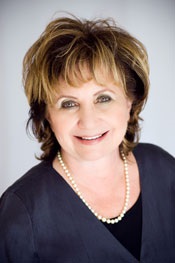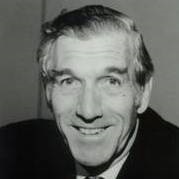EP85 Invited Address 09b - Strategic Family Therapy - Cloe Madanes
- Average Rating:
- Not yet rated
- Topic Areas:
- Invited Addresses | Psychotherapy | Family Therapy | Strategic Therapy
- Categories:
- Evolution of Psychotherapy | Evolution of Psychotherapy 1985 | Pioneers in Couples and Family Therapy
- Faculty:
- Cloe Madanes, HDL, LIC | Paul Watzlawick, PhD
- Course Levels:
- Master Degree or Higher in Health-Related Field
- Duration:
- 51:08
- Format:
- Audio and Video
- Original Program Date:
- Dec 14, 1985
- License:
- Never Expires.
Description
Description: Cloe Madanes presents strategic family therapy, focusing on shifting from individual to family-based approaches. She outlines techniques like reversing family hierarchies and prescribing symptom roles to create change, emphasizing the use of humor and playfulness. Discussant Dr. Watzlawick critiques the approach for potentially fostering dependence and lacking diagnostic clarity, while also examining the complexities of paradox and subjective reality in therapeutic work.
Moderated by William McLeod, MD.
Educational Objectives:
- To understand the interactional function of symptoms
- To understand how to plan strategies for change
*Sessions may be edited for content and to preserve confidentiality*
Credits
Handouts
| Timestamped Transcript (643.2 KB) | 13 Pages | Available after Purchase |
| Ericksonian Learning Snapshot (247.3 KB) | 2 Pages | Available after Purchase |
Faculty

Cloe Madanes, HDL, LIC Related Seminars and Products
Cloé Madanes, HDL, LIC, is a world-renowned innovator and teacher of family and strategic therapy and one of the originators of the strategic approach to family therapy. She has authored seven books that are classics in the field: Strategic Family Therapy; Behind the One-Way Mirror; Sex, Love and Violence; The Violence of Men; The Secret Meaning of Money; The Therapist as Humanist, Social Activist and Systemic Thinker; and Relationship Breakthrough. She has presented her work at professional conferences all over the world and has given keynote addresses for The Evolution of Psychotherapy Conference, the American Association of Marriage and Family Therapy; the National Association of Social Workers, The Erickson Foundation, the California Psychological Association and many other national and international conferences. Madanes has won several awards for distinguished contribution to psychology and has counseled outstanding individuals from all walks of life.

Paul Watzlawick, PhD Related Seminars and Products
Paul Watzlawick, received his Ph.D. from the University of Venice in 1949. He has an Analyst's Diploma from the C.G. Jung Institute for Analytic Psychology in Zurich. Watzlawick has practiced psychotherapy for more than 30 years. He was research associate and principal investigator at the Mental Research Institute. He was Clinical Professor at the Department of Psychiatry and Behavioral Sciences, Stanford University Medical Center. Watzlawick is a noted family therapist; he is recipient of the Distinguished Achievement Award from the American Family Therapy Association. Also, he is author, co-author or editor of eight books on the topics of interactional psychotherapy, human communication and constructivist philosophy.
He formulated five axioms. They are:
- It is not possible to not communicate. Every behavior is some kind of non-verbal communication.
- Every communication has a content. In addition, there is 'metainformation', which says how the communicator wants to be understood.
- All partners involved in a communication process also interpret their own behaviour during communication.
- Human communication involves both verbal and non-verbal communication. In addition to the spoken words, there are is also a non-spoken part (gestures, behavior, intonation..) which is part of the communication.
- Communication between humans is either symmetric or complementary. This is based on whether the relationship of those communicating is based on differences or parity.




